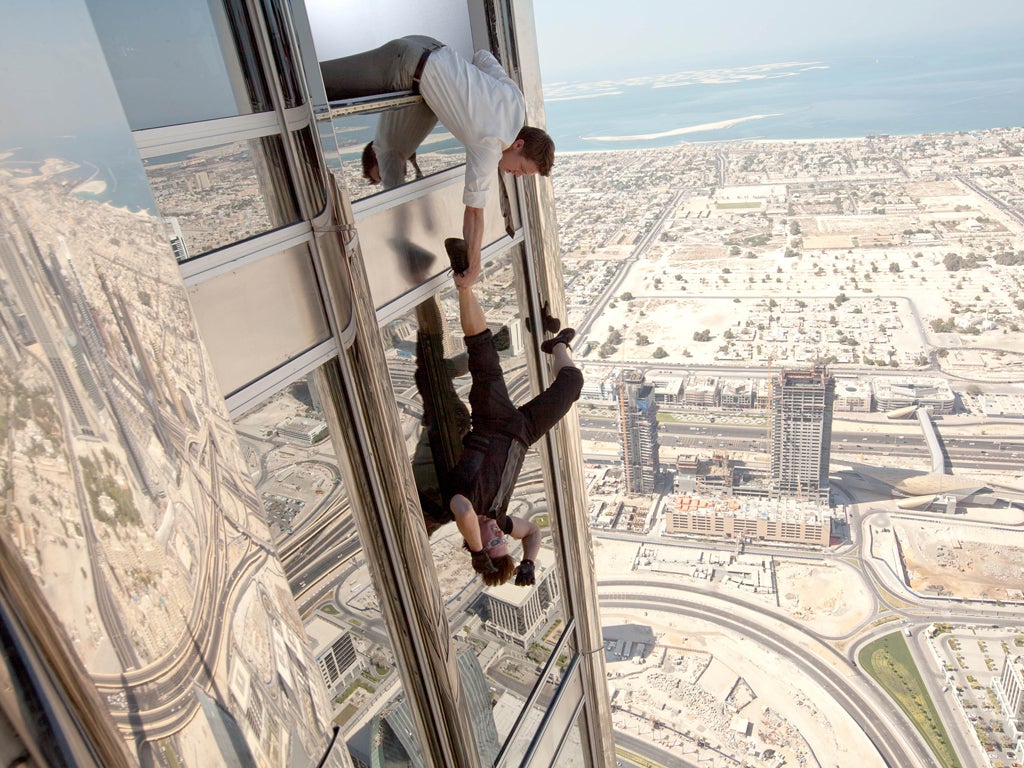Cut! It's time to snip the bloated blockbusters
Today's action films are way too long to be truly enjoyable, says Daniel Bettridge

Your support helps us to tell the story
From reproductive rights to climate change to Big Tech, The Independent is on the ground when the story is developing. Whether it's investigating the financials of Elon Musk's pro-Trump PAC or producing our latest documentary, 'The A Word', which shines a light on the American women fighting for reproductive rights, we know how important it is to parse out the facts from the messaging.
At such a critical moment in US history, we need reporters on the ground. Your donation allows us to keep sending journalists to speak to both sides of the story.
The Independent is trusted by Americans across the entire political spectrum. And unlike many other quality news outlets, we choose not to lock Americans out of our reporting and analysis with paywalls. We believe quality journalism should be available to everyone, paid for by those who can afford it.
Your support makes all the difference.Is it just me or are films getting longer? My last two cinema excursions have involved predictable action nonsense in the form of Tom Cruise's falsely titled Mission: Impossible – Ghost Protocol (the fact the movie is now on its fourth iteration proves said mission is more than accomplishable) and Guy Ritchie's Sherlock Holmes: A Game of Shadows. Neither film is what you'd call a cultural magnum opus, and yet both found me shifting uncomfortably in my seat as they each creaked past the two-hour mark.
They're not alone. It seems that movies have been steadily getting longer for years. If you look back at the 1980s, a heyday for economic storytelling in which even The NeverEnding Story could be told in little more than an hour and a half, the average length of the decade's 10 top grossing films was 119 minutes. In the Noughties, however, the average top-grossing blockbuster came in at a buttock-numbing 149 minutes.
If recent releases are anything to go by, the current decade looks set to follow suit. In the past two years, the average duration of a blockbuster has swelled, with Hollywood adopting the mantra that quantity rather than quality is the best way to justify increasing admission fees. In 2010, for example, Harry Potter and the Deathly Hallows lumbered on for two-and-a-half hours.
It's not just fantasy films. Someone should have taken a chainsaw to Terrence Malick's Tree of Life, which went on for two hours and 19 minutes. The action genre, where Michael Bay required more than two-and-a-half hours to tell a story about robots beating the hell out of each other (Transformers: Dark of the Moon), was equally excessive.
It's not just the running time I have a problem with, either. Add in the seemingly never-ending adverts, trailers and reminders that you still have enough time to nip to the lobby for an over-salted snack and your average trip to the cinema starts to resemble an endurance test rather than an entertainment experience. Whatever happened to the old Hollywood mantra to always leave your audience wanting more?
I'm not against long movies per se. In fact, good films are rarely long enough, and I'd find it almost impossible to shave a single second off, say, the 212-minute long Ben-Hur. Indeed, length has always been associated with quality films, as the average duration of an Oscar-winning Best Picture from the past three decades – two hours and 27 minutes – will testify. Instead, my problem lies with the type of movie that's getting longer. Does blockbuster fodder really need to exceed two hours? Would Tom Cruise's impossible mission or Sherlock Holmes's deductive fisticuffs really be poorer if 20 minutes were shaved off? Probably not.
So why are movies getting longer? The answer perhaps lies in the changing power dynamic in Hollywood. In the 1980s golden age of taut cinema it was the studios, not the directors, that wielded the power. As a result, economics, not art dictated the length of movies. Shorter films equalled more showings at cinemas, more bums on seats and, crucially, more profit. Now we're in the age of the big director, where one profitable picture makes the men and women behind the cameras demi-gods on the studio lot who can seemingly do no wrong and will almost certainly ignore their paymasters' protestations to trim their work. The economics have also changed. Today's tent-pole efforts rely on their opening weekend for the vast majority of their income, and so releases need to be seen as "events" as well as entertainment in order to coax the audience into their local multiplex.
It's a false economy of course. Maybe it's time that the studios wrestled control away from the people behind the cameras. Or maybe someone needs to teach them how to cut a long story short.
Join our commenting forum
Join thought-provoking conversations, follow other Independent readers and see their replies
Comments